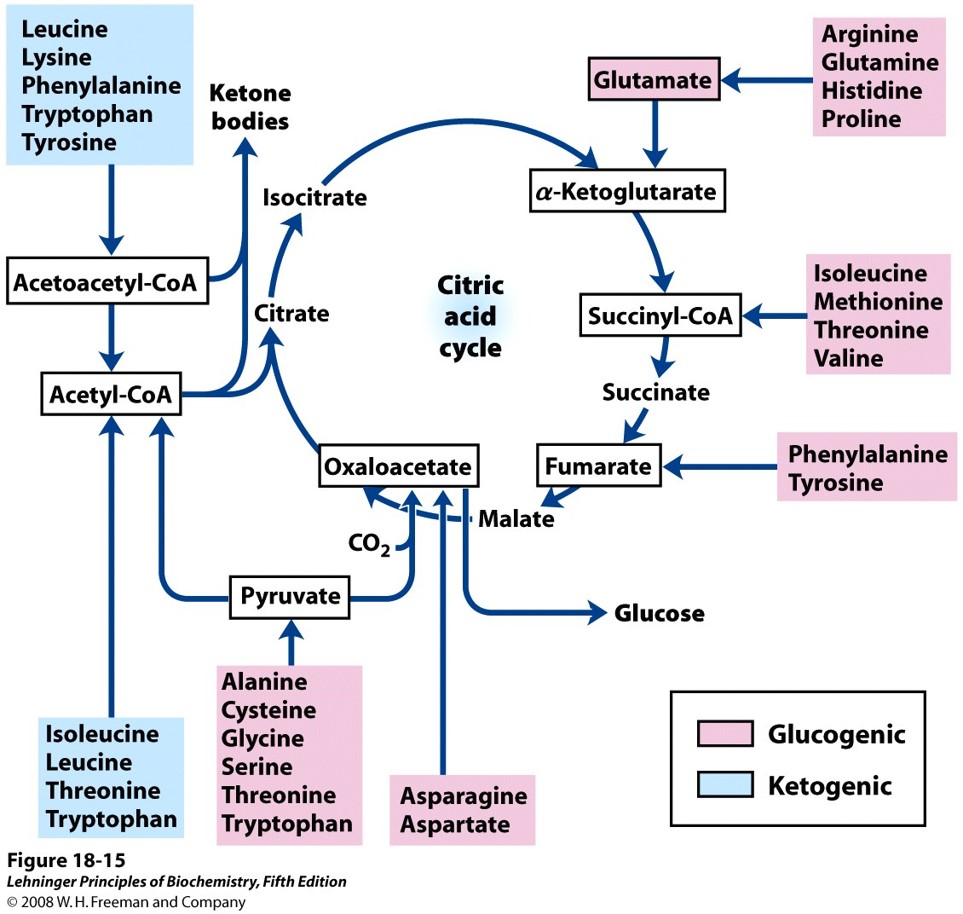Cysteine, glycine and serine could be transaminated to become pyruvate which could then become acety-CoA.
So, as acetyl-CoA could form ketone bodies, why are these amino acids not ketogenic amino acids as well?
So, as acetyl-CoA could form ketone bodies, why are these amino acids not ketogenic amino acids as well?

